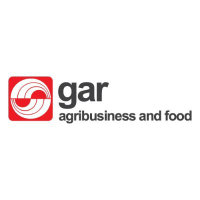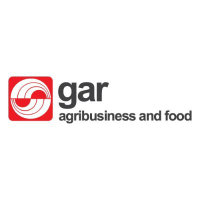
Golden Agri-Resources Ltd
SGX:E5H


| US |

|
Johnson & Johnson
NYSE:JNJ
|
Pharmaceuticals
|
| US |

|
Berkshire Hathaway Inc
NYSE:BRK.A
|
Financial Services
|
| US |

|
Bank of America Corp
NYSE:BAC
|
Banking
|
| US |

|
Mastercard Inc
NYSE:MA
|
Technology
|
| US |

|
UnitedHealth Group Inc
NYSE:UNH
|
Health Care
|
| US |

|
Exxon Mobil Corp
NYSE:XOM
|
Energy
|
| US |

|
Pfizer Inc
NYSE:PFE
|
Pharmaceuticals
|
| US |

|
Palantir Technologies Inc
NYSE:PLTR
|
Technology
|
| US |

|
Nike Inc
NYSE:NKE
|
Textiles, Apparel & Luxury Goods
|
| US |

|
Visa Inc
NYSE:V
|
Technology
|
| CN |

|
Alibaba Group Holding Ltd
NYSE:BABA
|
Retail
|
| US |

|
3M Co
NYSE:MMM
|
Industrial Conglomerates
|
| US |

|
JPMorgan Chase & Co
NYSE:JPM
|
Banking
|
| US |

|
Coca-Cola Co
NYSE:KO
|
Beverages
|
| US |

|
Walmart Inc
NYSE:WMT
|
Retail
|
| US |

|
Verizon Communications Inc
NYSE:VZ
|
Telecommunication
|
Utilize notes to systematically review your investment decisions. By reflecting on past outcomes, you can discern effective strategies and identify those that underperformed. This continuous feedback loop enables you to adapt and refine your approach, optimizing for future success.
Each note serves as a learning point, offering insights into your decision-making processes. Over time, you'll accumulate a personalized database of knowledge, enhancing your ability to make informed decisions quickly and effectively.
With a comprehensive record of your investment history at your fingertips, you can compare current opportunities against past experiences. This not only bolsters your confidence but also ensures that each decision is grounded in a well-documented rationale.
Do you really want to delete this note?
This action cannot be undone.

| 52 Week Range |
0.26
0.295
|
| Price Target |
|
We'll email you a reminder when the closing price reaches SGD.
Choose the stock you wish to monitor with a price alert.

|
Johnson & Johnson
NYSE:JNJ
|
US |

|
Berkshire Hathaway Inc
NYSE:BRK.A
|
US |

|
Bank of America Corp
NYSE:BAC
|
US |

|
Mastercard Inc
NYSE:MA
|
US |

|
UnitedHealth Group Inc
NYSE:UNH
|
US |

|
Exxon Mobil Corp
NYSE:XOM
|
US |

|
Pfizer Inc
NYSE:PFE
|
US |

|
Palantir Technologies Inc
NYSE:PLTR
|
US |

|
Nike Inc
NYSE:NKE
|
US |

|
Visa Inc
NYSE:V
|
US |

|
Alibaba Group Holding Ltd
NYSE:BABA
|
CN |

|
3M Co
NYSE:MMM
|
US |

|
JPMorgan Chase & Co
NYSE:JPM
|
US |

|
Coca-Cola Co
NYSE:KO
|
US |

|
Walmart Inc
NYSE:WMT
|
US |

|
Verizon Communications Inc
NYSE:VZ
|
US |
This alert will be permanently deleted.
 Golden Agri-Resources Ltd
Golden Agri-Resources Ltd






 You don't have any saved screeners yet
You don't have any saved screeners yet

We'll start with the executive summary of our results presentation. And the -- you're probably aware that the industry has suffered in the first quarter, a reduction both in production of palm oil but also lower CPO prices and accordingly, Golden Agri saw weaker results that impacted our financials throughout.
And we will discuss the details in the coming slides for both the upstream and downstream sectors. But we, first, have the consolidated financial performance. So here you can see that both year-on-year and quarter-on-quarter we saw lower results and that was primarily coming from the upstream business, our plantations, for the reasons I mentioned being the lower CPO price on average as well as the lower production. In the downstream, unfortunately, we didn't get extra support as we saw some intervention by governments on the sector, which impacted our downstream operations as we'll discuss in a moment as well. The financial position of Golden Agri remained robust as our margins saw limited impact and the net gearing ratio remained stable at 0.43x. So we come to the segmental results and here we see the upstream with the fruit production being 13% lower year-on-year. And so the reason for this is that at the end of 2017 -- beginning of 2017, we saw the rapid recovery from the El Niño droughts period that we experienced, which meant that we saw unusually high production in those periods and that set a high base for the production this year. Nonetheless, we still expect the production to recover and see stronger production year-on-year for 2018.
The plantation area on the next slide shows that Golden Agri has over 5,000 hectares of planted area under management. We saw the productivity impacted, as I said, by previous weather conditions. And while the age profile is maturing for Golden Argi, this was not a reason for the lower production because the fruit yield of our older trees which represent 14% of total was at 4.5 million tonnes, which is above the plantation average of 4.4 million tonnes. At the same time, we continue to replant the existing old trees with higher-yielding new seeds and they will continue to increase our production volumes in the future even if we would not expand our planted area.
So in the downstream, we saw the margin reduce slightly from 2.1% first quarter 2017 to 1.6% for this quarter. And we believe this is a temporary impact caused by some policy decisions in Malaysia, where we saw the import tax removed by the Indonesian governments to clear out the excess palm oil stocks that they have. And at the same time, we saw the import tax increase for palm oil in India. And this is -- this was to protect the domestic vegetable oil production, so therefore, we saw a negative impact on CPO prices, which impacted our downstream operations as well. Nonetheless, the downstream continues its move towards enhanced integration and focus on high value added products that will improve margins over the long term.
The final segments are the oil seeds and others, which is predominantly our China business. And while the China Business environment remains challenging and then Golden Agri sold off its changing assets, nonetheless, the contribution continues to be a positive, so we saw a very little impact. And we believe that the China operations will continue to provide positive contribution to Golden Agri's results.
So next is our strategy and outlook. And the focus for Golden Agri is really in 3 areas. The first is technology. Golden Agri has always been able to be among the highest or the highest in terms of efficiency of producing palm oil, and we think technology plays an important role there and will continue to play an important role. The current focus is on mechanization and automation in the upstream to reduce costs. And we're looking at, as I mentioned, replanting with the next generation seeds, which will result in higher yields. And we also continue to look at the downstream, the logistics, through the long-term investments we have. So that helps us in the customer segment. So Golden Agri is moving away from just being a producer towards a customer-focused operation by further expanding our global distribution with the best-in-class supply chain management and a broader portfolio of higher value added products. This will help us to enhance the relationship with customers, to provide them better services and solutions. In terms of sustainability, Golden Agri continues to play a leading role. And an important segment is the end-to-end traceability that we continue to push for as well as the comprehensive engagement of stakeholders especially the local communities.
Next is the growth strategy and outlook. The CapEx budget for this year is $220 million, of which half is spent on the upstream business predominantly for the replanting with the high-yielding seeds, as I mentioned, and in the downstream, we continue to look at further enhancing the logistics facilities and the broadening of the products portfolio. The outlook on palm oil remains positive. As I started off with, we have seen some weaker prices in the past quarter, but we believe that we -- there is more upside to the current price than downsides for 2 reasons. We think the production growth can -- that is expected towards the second part of the year can easily be absorbed by the enhanced consumption coming both from the fruit sides and in the short time, it will be the festive season. As well as the increase in biodiesel usage, especially in Indonesia but also in other parts of the world which continues to grow. At the same time, we've also seen the crude metal prices increase, which we believe provides a further floor to secure pricing in the form of discretionary biodiesel production.
So that completes the presentation on the commercial sides. Shu Ling will discuss our further finances in the same.
Okay. Thanks, Richard. As Richard mentioned previously, one of our major initiatives has been to try to establish full traceability and we're happy to report that we achieved that target of full traceability to the plantation for GAR-owned mills. We had said that we would aim to do this by the end of 2017 and we have actually achieved this. So through this, it means that 39% of our total palm supply chain is now fully traceable. And the great significance of this means that we're able to reach out to even more stakeholders in our supply chain, so be it the brokers, the independent small-holders, we're able to reach out to them now because we have identified them, and the aim is to help them upgrade their practices so that they are in line with our own sustainability commitments and policies. So since 2015, we have been on a continuous program of site visits and trainings with our suppliers. And since 2015, we have conducted at least 79 visits to 73 supplier mills to help them improve their practices. And of course we will continue this further and the next step is now actually helping our third-party suppliers do their own traceability to the plantation as well. We are aiming for a deadline of end 2020 for our third-party suppliers to report full TTP.
Moving on, of course, we're moving towards the dry season, so we continue to be vigilant on fire prevention. And to date since January, only about some 8 hectares of our area have been affected by fires. And we have extended our fire-free program, whereby we support and train local communities in fire prevention, and they're expanding that to 5 villages in Riau and 10 more villages in Central Kalimantan.
And finally, we've also begun to seriously address human and labor rights issues in an industry-wide initiative, so we've joined other industry players such as Cargill, Musim Mas, Sime Darby, Wilmar together with nonprofit organization Forum for the Future. And the aim is to improve the protection of human and labor rights of workers in the agricultural sector, and it will initially focus on Indonesia. So the next steps for that is to have everybody in a consultative dialogue, and we hope to report on action plans by the end of this year.
So that's it for the sustainability section.
Thank you, Shu Ling.